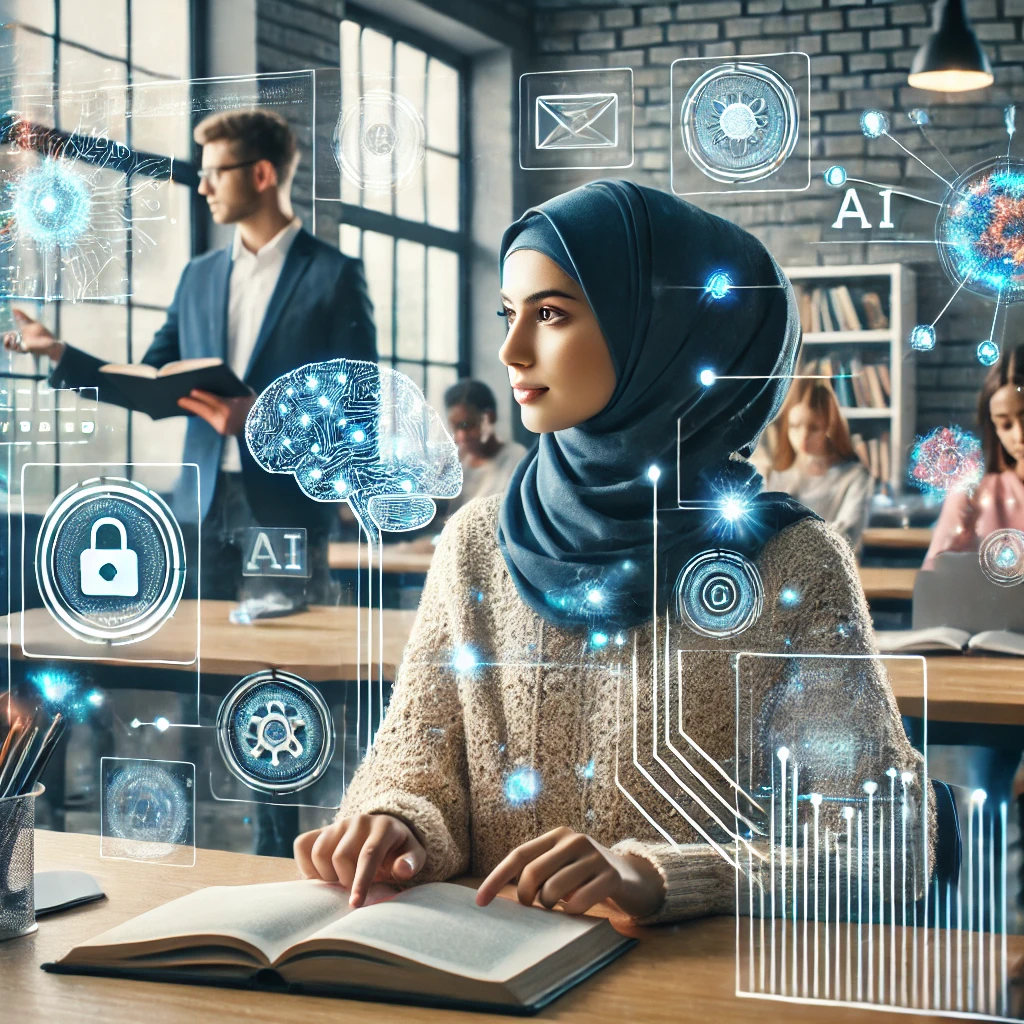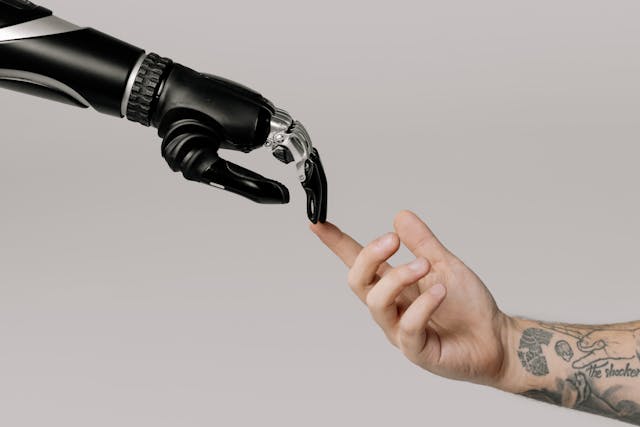What is AI in Education, and Why is It Important?
Education is no different there is immense value in Education, and Artificial Intelligence (AI) is becoming a cornerstone of innovation across industry. So, what does AI mean, and how does it fit into the world of teaching and learning?
In simple terms, AI is how machines and computers can make their ways to mimic human intelligence or do the same work that humans would do when given information to learn from data, make decisions, and solve problems. AI as an education technology is a cutting-edge solution to age old problems to create smarter and more efficient means for educators and students.

AI in Education
AI in education refers to an approach that involves applying intelligent systems and tools to advance approaches to teaching and learning processes and tasks such as record-keeping. Advancing this learning experience beyond traditional teaching methods, it utilises advanced algorithms to deliver personalised, data driven educational experiences.
Some of the key features of AI in education include:
- Personalised Learning: The core technology of AI is to follow instruction as it is and tailor it to student’s unique needs, pace of learning, and interactivity.
- Automated Tasks: AI takes away the heavy load of educators from grading exams to tracking attendance so they can pay more attention to teaching.
- Immediate Feedback: AI-powered chatbots constantly offer immediate answers and guidance to students, helping them continue to learn outside of the classroom.
These AI’s capabilities are very useful for modern education especially when digital learning is in full swing.
Why AI is Important in Education
AI is addressing some of the most difficult challenges educators and students face today. Often, large classrooms, diverse learning needs, and limited resources prevent traditional methods from fulfilling the needs of all learners. AI fills in this gap by introducing tools to make learning more inclusive, comprehensive, streamlined, and effective.
1. Enhancing Accessibility
Google’s AI-powered text-to-speech and translation language tools make learning materials available to students with disabilities or who speak different languages.
2. Supporting Teachers
AI helps relieve a large amount of the teacher’s workload, such as grading and lesson planning. It lets them spend time preparing the students’ spirit of creativity, critical thinking, and emotional intelligence.
For example, ClassPoint AI creates quizzes, while Grammarly assists with polishing written work. This helps educators avoid spending days completing this task and saves them valuable time and effort.
3. Improving Learning Outcomes
AI is capable of determining a student’s abilities, challenges, and development at any given particular point in time. That way, teachers can easily see where the students may be struggling and make sure that nobody is left behind from the group.
4. Preparing for the Future
With the changing technology, it is essential to make students ready for a world where digital skills are even the most valuable. Education with AI can give learners skill sets for future success in the AI industry, such as problem-solving and computational thinking.
How AI is Already Transforming Classrooms
AI’s impact on education is no longer futuristic, and it’s happening right now in the classrooms of the world. Here are some examples:
- Adaptive Learning Platforms: Tools like Khan Academy’s AI-based systems adjust the difficulty level of lessons dependent on a student’s progress.
- Writing Assistance: Students can use applications like QuillBot and ChatGPT to refine their writing skills by suggesting clarity, grammar, and creativity.
- Content Creation Tools: Educators can use platforms, such as Canva Magic and Bing Image Creator, to help them create interesting presentations and infographics.
- Automated Support Systems: Chatbots and virtual assistants give students instant answers to their questions and make learning more interactive and accessible.
The Broader Impact of AI on Education
The integration of AI into education is more than a technology upgrade. It’s an evolution of culture when it comes to how to teach and how to learn. By adopting AI, we can:
- It allows us to adopt a more student centric approach where each student is attending to them.
- Making knowledge available to anyone, anywhere, at any time.
- Tools that encourage lifelong learning that adapt to changing learners’ needs.

AI is not here to replace teachers, and teachers don’t want AI to replace them. They want AI to help them and enable them to create better, richer, more meaningful learning experiences.
To Wrap Things Up,
The field of Artificial Intelligence in Education is a new frontier that promises to change how we teach and learn. For all its value in the modern classroom, I believe the new world of connected learning has the ability to personalise education, reduce barriers and prepare students for the future.
In this exciting era of AI, we need to understand both the opportunities and the responsibilities, AI requires. When we write AI into our education system thoughtfully and ethically, we can generate an education system that is inclusive, inventive, and innovative for all.
In the next section of this blog, I will go into my experience with AI throughout the semester and how that shaped my learning. Stay tuned 🙂
